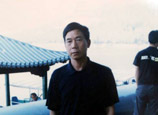
Key Words:Shinzo Abe; South China Sea; Diaoyu Islands; ASEAN
Related Reading:
>> Japan to handle 'invasive' jets with int'l standards, China on high alert
>> China alert to Japanese Diaoyu Islands escalation
>> Chinese leader calls for dialogue to resolve Diaoyu Islands issue
Major strategic change under way in the Asia-Pacific: Japanese PM
Japanese Prime Minister Shinzo Abe kicked off his first overseas visit since his election victory in December in a bid, analysts said, to bolster Japan's regional influence and try to contain China.
Before embarking on Wednesday on the trip, to three Southeast Asian nations, Abe said the strategic environment of the Asia-Pacific region is undergoing a "major change".
Abe and his Vietnamese counterpart Nguyen Tan Dung held talks in Hanoi. Abe will also visit Thailand and Indonesia. Japanese media have carried quotes from government sources saying that the main purpose of the visit is to strengthen maritime cooperation with other countries against China.
Abe expressed concern at what he described as China's increasing maritime presence. Japan is considering helping Vietnam's infrastructure program and may also provide more loans, Japan's NHK Television reported.
Jia Duqiang, a researcher at the Chinese Academy of Social Sciences, said China should be confident of its position and reach out to its neighbors to counter Abe's diplomatic blitz. Abe turned his focus quickly to the region after Washington told him earlier this month that a visit to the US would be difficult to schedule at such short notice.
"Abe's trip is political posturing and will have few, if any, benefits. Hanoi will surely consider ties with Beijing when dealing with Tokyo, and Hanoi will not miss the big picture simply because of the South China Sea issue,'' Jia said.
Ties between China and Japan ran into severe turbulence in September after Tokyo illegally "purchased" part of the Diaoyu Islands, which have belonged to China for centuries.
Japan's exports to China, and China-based outsourcing businesses, have been hit and reports said some Japanese entrepreneurs are avoiding investing in China and are turning to emerging economies in Southeast Asia.
 |
















 'Sister House' case urges efforts in combating corruption in affordable housing
'Sister House' case urges efforts in combating corruption in affordable housing


![]()
